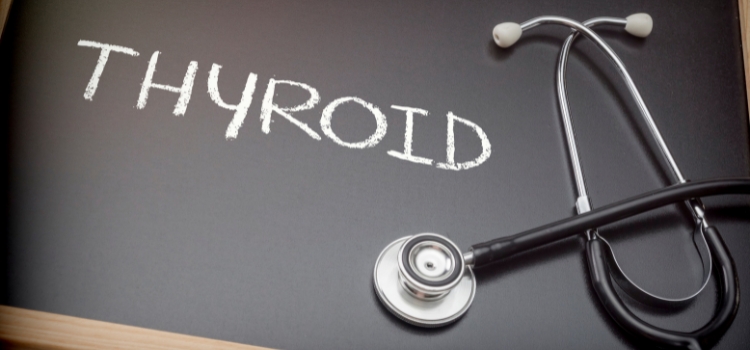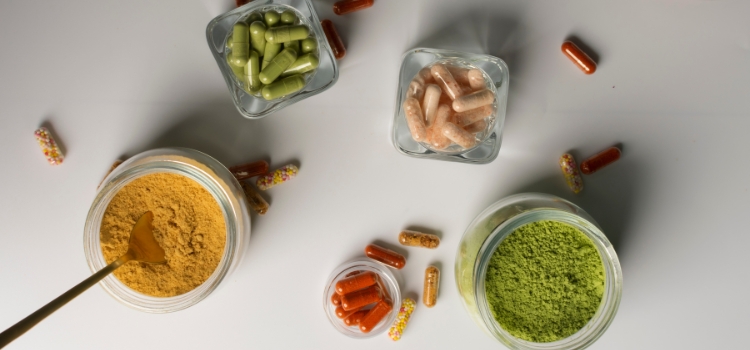Thyroid Function And Why It Matters
Why The Thyroid Is More Important Than Ever
Located just below your Adam’s apple, in the middle of the lower neck, is a butterfly-shaped gland responsible for the regulation of balance in your body (also referred to as homeostasis). It might be tiny, but the thyroid gland is powerful! An estimated 20 million Americans have some form of thyroid disease. What’s even more staggering, is that up to 60% of those with a thyroid condition are unaware of it! You can read more on why you need a Full Thyroid Panel and not just TSH levels here.
There are generally three categories of malfunction: hyperthyroidism (over active), hypothyroidism (under active), and autoimmune disease (constant inflammatory responses to things our bodies need).
The effects of a malfunctioning thyroid can manifest in various ways:
- Weight gain
- Sluggishness, fatigue and difficulty getting things done
- Irritability, anxiety, and/or rapid heart beat
- Difficulty concentrating
- Elevated LDL (that’s the cholesterol that gets a bad rap)
5 Ways for Optimizing Thyroid Function Naturally

Eat From the Earth
Eat foods high in B vitamins, which are precursors to thyroid hormones and influence cell energy. Balance your diet with poultry, nuts and seeds, and legumes. Red meat provides magnesium, iron, zinc, and other minerals essential for thyroid hormone function, and the health of other bodily systems affected by thyroid disorders (metabolism, skin, and hair).
Eat from the Sea
The sea provides many natural sources of iodine, a building block of the thyroid hormone. Table salt has a high concentration of iodine because it’s been fortified, but it can also raise blood pressure. Sea salt is also a good source of natural iodine, but should also be used sparingly if you are having water retention issues or concerned about hypertension. Instead, you may choose to opt for saltwater fish, or seaweed. (Seaweed Flakes are a wonderful addition to any meal and is just a little salty so you can use it in place of salt while getting a natural source of iodine). Cod and halibut are high in selenium, which protects the thyroid gland during periods of stress and helps regulate hormone synthesis. Fish oil provides essential fatty acids that reduce inflammation, which plays a role in causing autoimmune diseases. More on Fish Oil here (Omega 3 and Fish Oils).

Move!
Exercise at least 30 minutes a day. Yoga is particularly good for thyroid health, including poses such as butterfly, fish pose, shoulder stand, and child’s pose. Not the yoga type? No problem! Any exercise, as long as you’re consistent, can be beneficial.

Relax
A daily relaxation practice, such as just 10 minutes a day of silence, deep breathing, or meditation can make a big difference in the state of mind and as a result, the body.

Get Supplement-al Insurance
Our diets aren’t always perfect, so supplementing with a vitamin/mineral or botanical (herb) regimen can provide extra insurance against exposure to stress, toxins, and perhaps your own family history. Confused about what nutraceutical product is best for you? No problem. Check out the 8 Supplements of Vitality, as well as some great reasons why quality and type matter when it comes to supplements.

Thyroid Function Overview
If you are still with me and there is an inner nerd that lives inside of you, keep reading for more thyroid function details.
The thyroid is part of the endocrine system, which includes the pituitary gland, hypothalamus, thymus, pineal gland, testes, ovaries, adrenal glands, parathyroid, and pancreas. It makes hormones, primarily T3 and T4, but has effects on production of other hormones as well. Hormones travel through your bloodstream and regulate your metabolism, brain and heart function, and reproductive and menstrual cycles.
When the thyroid is not functioning properly, a chain reaction of hormonal events takes place that involves many other glands/hormones of the endocrine system and the bodily systems they regulate. The end result is one of two primary types of health conditions: hyperthyroidism or hypothyroidism. (Autoimmune disease often results in either hypo- or hyper- function.)
Hyperthyroidism results when the thyroid is overactive. Think of hyperthyroidism like a butterfly that can’t stop fluttering its wings. Everything is on overdrive, including metabolism, frequency of bowels, emotions (anxiousness), increased sweating, and for women, very light menstruation or cessation of the menstrual cycle. Symptoms often include feeling hot and difficulty maintaining a healthy weight. There are also bouts of exhaustion from trying to maintain this intense state of “being on” and it often puts the adrenal glands on overdrive.
Hypothyroidism results when the thyroid is underactive. This is the more common condition of the two. In this case, the butterfly just can’t get its wings to get going. Weight gain, sluggishness, and brittle hair and nails are very common symptoms. These are also often accompanied by feeling cold, tired, depressed, and often constipated. Menstruation for women with hypothyroidism is often irregular and heavy.
*A note on refined grains: Flour is often fortified with bromine, an element that resembles iodine. Unfortunately, when ingested, bromine often replaces iodine in the thyroid, causing the thyroid to under-perform. You can find “unbrominated flour” products, but in general, this is yet another good reason to avoid refined carbohydrates, and stick to whole grains. Also, if you remember back to science class and the Halogen Ions in the periodic table, they can all compete for iodine in the thyroid, so also be aware of Fluoride and Chlorine in our everyday world.
If you suspect a thyroid condition, talk with your wellness provider right away. There are a variety of tests that can help your functional medicine providers create an appropriate and integrative treatment plan for optimizing thyroid function and re-balancing your hormones.
Related Posts
Vitamin B12 & Methylmalonic Acid
Vitamin B12 is a nutrient that helps keep our bodies' blood and nerve cells healthy and helps make DNA, the genetic material of our cells. It also helps with bone health, red blood cell formation, energy levels, cognitive health, heart health, and mood. It is also a critical component in methylation. Click below to learn more !
Why You Should Care What Goes In Your Mouth.
Have you ever heard of someone feeling better after modifying their diet? There are, in fact, several mechanisms of action to explain this claim. Click Below to find out what those mechanisms are!

Dr. Deborah Bowers
822 B E Liberty St
York, SC 29745
(803)628-7934
© 2025 Dr. Deborah Bowers. All Rights Reserved.
Site Conceived By HealthProWebsite.com

